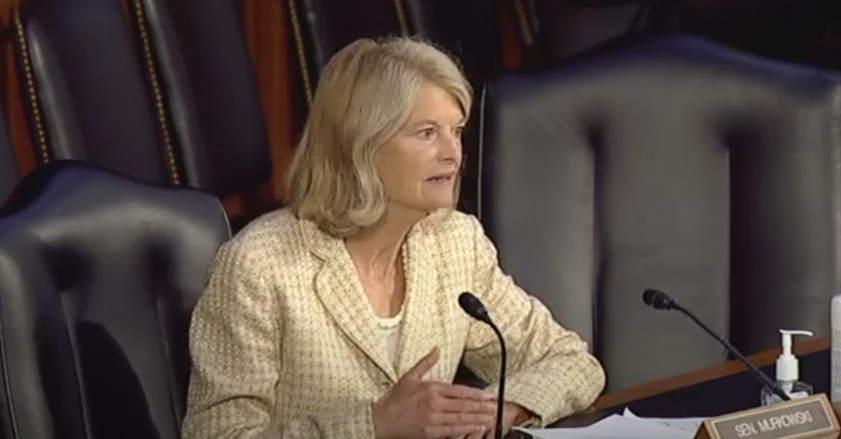Murkowski Participates in Hearing on Reproductive Rights
Speaks to Impacts of Recent SCOTUS Decision and Immediate Steps to Ensure Women Have Access to Care
U.S. Senator Lisa Murkowski (R-AK) this week took part in a U.S. Senate Health, Education, Labor and Pensions (HELP) Committee hearing to examine access to reproductive care following a June 24 decision by the U.S. Supreme Court to overturn Roe V. Wade. The hearing gave an opportunity to address questions surrounding what can be done to improve access now, patient confusion, and downstream impacts on access to health care.
“I have heard many stories from Alaskans, most notably in these past couple weeks, from women who are really very distraught about the Supreme Court ruling in the Dobbs case. But the stories that have been shared in this committee – from a personal decision to terminate a pregnancy, to the challenges that parents or family members faced in accessing care, to the stories of women who visited clinics and decided to continue a pregnancy – all demonstrate how these are very deeply personal, deeply complicated, and of course, incredibly challenging, decisions that far too many women face each year and clearly that Americans hold deep and conflicting convictions over. When it comes to decisions that are so personal, that are so complex, and have such an impact on a person’s life, I think that that choice must ultimately be in the hands of the individual and not in the government. That is where I came down on vaccine mandates, it’s where I come down on abortion, but I think that there are nuances and grey areas. Many Americans, myself included, believe that it is reasonable to not require those who are firmly opposed to abortion to support it with their tax dollars, and that providers who do not wish to be involved in abortions should not be forced to be. What I would hope that what we can agree on is that it’s in the best interests of everyone to create a system where fewer women face this choice in the first place, because everybody has adequate access to and knowledge about contraceptives, and because women and families have the support that they need.”

Click here for video of Murkowski’s opening statement.
Click here for Murkowski’s question on downstream impacts.
Senator Murkowski supports a woman’s right to make her own reproductive health care decisions and spoke to how she’s working with colleagues on bipartisan legislation to ensure the rights women have relied on for the last 50 years – as established in Roe, Casey, and Griswold – are protected.
During the hearing, Senator Murkowski spoke to her opposition to calls for eliminating the legislative filibuster to advance abortion access legislation, citing her longstanding position, and the consequences to both sides of the aisle for taking such action.
Background:
Senator Murkowski supports a woman’s right to choose, the precedents established by Roe v. Wade, and the limitations the Supreme Court has placed on laws regarding abortion services. While Senator Murkowski supports a woman’s right to make her own reproductive choices, that support is not without limits. She opposes taxpayer funded abortions.
In February 2022, Senators Collins and Murkowski introduced the Reproductive Choice Act, legislation to codify the protections previously provided under Roe and Casey into law so that all women in America could be confident their reproductive freedoms would not be abruptly reduced or eliminated.
In May 2022, the Senate took a procedural vote on the Women’s Health Protection Act (WHPA), which failed to pass by a 49-51 vote. The Women’s Health Protection Act (WHPA) went far beyond codification of abortion rights in Roe and Casey. The bill also excluded the Hyde amendment, which prohibits taxpayer dollars from being spent on abortions—and has been the law almost as long as Roe.
In June 2022, the Supreme Court released its decision on Dobbs v. Jackson Women's Health Organization, to overturn Roe v. Wade, placing the responsibility on states to set their own abortion laws.








